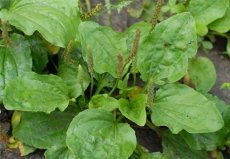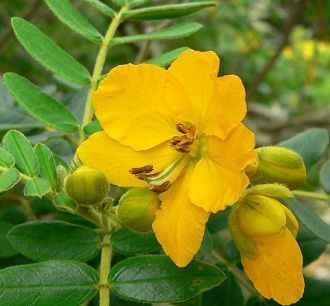Medical expert of the article
New publications
Plants against constipation
Last reviewed: 04.07.2025

All iLive content is medically reviewed or fact checked to ensure as much factual accuracy as possible.
We have strict sourcing guidelines and only link to reputable media sites, academic research institutions and, whenever possible, medically peer reviewed studies. Note that the numbers in parentheses ([1], [2], etc.) are clickable links to these studies.
If you feel that any of our content is inaccurate, out-of-date, or otherwise questionable, please select it and press Ctrl + Enter.

Irrigation in the treatment of constipation
When treating constipation, it is necessary to drink a lot of water. The recommended amount for an adult is about 1.5 - 2 liters of liquid per day. If you drink water in 250 gram glasses, this is 7 - 8 servings per day. It is best when we drink clean boiled water, and even better - bottled non-carbonated water containing magnesium ions, which are in short supply in the human body.
Sources of Protein in Your Daily Diet
Most insoluble fibers include cellulose, hemicellulose, and lignin - they are found in abundance in grains of rye, wheat, corn, beans, and other plants, as well as in the skin of vegetables and fruits. Fruit pulp has a significantly smaller amount of insoluble fibers. The simplest diet retains water in the intestines, and this is useful for feces. For example: 100 g of potatoes bind 40 g of water in the intestines, 100 g of carrots or apples - up to 70 g of water.
Fibrin (a high molecular weight protein) increases the weight of stool. Some of the components of fibrin absorb water in the intestines, making the stool softer and lighter, and therefore more mobile. Products with a lot of plant fiber are recommended. It is currently suggested that the required amount of fiber should be at least 35 grams per day. When treating constipation, it is also very important to stay hydrated - that is, drink plenty of water.
 [ 6 ]
[ 6 ]
Diet against constipation
This diet mainly consists of still water and fiber-containing foods.
It is recommended that the patient:
- Drink at least 2 liters of still water per day
- Before each meal I drank 1 glass of boiled hot water
- I ate frequently, but in small amounts (second breakfast, afternoon tea)
- I ate fruit for lunch and afternoon snack.
- Consumed about 30 grams of vegetables per day (broccoli, beets, raw carrots, etc.),
- Ate a large amount of coarse grains (buckwheat)
- Took 2 tablespoons of bran per day (preferably soaked in water or yogurt)
- Reduced consumption of potatoes, rice, bread
- Ate dried fruits (plums, apricots)
- I didn’t go to bed immediately after eating (the last meal was between 6-7 pm, and it should be liquids and fruits).
Increasing a person's sports activity is of great importance for the motility of the large intestine - daily walking, cycling, swimming, competitive swimming, etc.
Dietary supplements against constipation
In a situation where we cannot decide for ourselves which diet to choose (eat in a restaurant, cook at home, etc.), or diets do not bring the desired results, food supplements should be used. We are talking about animal and plant substances, natural substances to facilitate defecation. The most popular are bran of cereals (wheat, oats), flaxseed, or soluble fibrin, which is called methylcellulose.
They work on the principle of water absorption in the intestines (they absorb water like a sponge!) and thus form a loose mass of feces. These natural remedies will also help soften the feces and improve bowel function, adsorb waste and toxins, and this, in turn, facilitates their removal from the body.
Flax seeds for constipation
A valuable remedy against constipation is flaxseed. Due to its ability to absorb water, flaxseed effectively prevents dehydration of the stool and prevents constipation. Constipation is also prevented by a large amount of mucus (extracted with water) and flaxseed oil - it has lubricating properties, the ability to settle on the intestinal walls.
In addition, flax seeds can activate the intestines, stimulate and accelerate the movement of feces in the colon.
Recipe with flax seeds
Grind flax seeds in a grinder or coffee grinder. Every day you should consume two to three tablespoons of ground seeds. They can be mixed with milk or plant foods, sprinkled with cheese, mixed with yogurt, added to salad. You should remember to drink more liquid at the same time (at least 2 cups).
When we use flax seeds that are not diluted with water, it can turn the food into clots and become useless or even harmful. But be careful! Flax seeds cannot be stored for a long time after crushing, because under the influence of oxygen, light and high temperatures, its valuable active substances will quickly decompose.
Recipe against constipation from wheat or oat bran
It is recommended to consume 16-20 grams of raw bran, 2-3 teaspoons mixed with fruits or three times a day in combination with cereals. Note, however, that bran should be consumed with plenty of water, otherwise the stool will be too dehydrated and will only irritate the intestines. Note that 100 g of bran in the intestines should be taken with 450 g of water! Bran provides good hydration and prevents bloating and other symptoms of constipation.
Psyllium Seeds for Constipation
Psyllium seeds, as well as water-soluble plant fibers, create a jelly-like, mucus-like, or glue-like consistency in the intestines. This layer absorbs water and swells greatly. It settles on the walls of the colon to soften the stool, ensure its movement, and allow it to absorb waste and toxins, which in turn facilitates their removal and expulsion from the body.
 [ 15 ], [ 16 ], [ 17 ], [ 18 ]
[ 15 ], [ 16 ], [ 17 ], [ 18 ]
Plantain Seed Recipe
Take 2-3 teaspoons of seeds, but not more, as seeds in large quantities irritate the respiratory tract and can cause allergies. Place the seeds in a glass of warm water and boil for 5 minutes, but the mixture must be stirred. Then the mixture must be cooled for one hour and drunk, but keep in mind that it will have a very dense texture, like milk. The treatment can be repeated 1-3 times a day. The course of treatment is 2 months.
Indian Senna for Constipation

Senna is also a powerful method by taking herbal medicines, including glycosides. They are present in large quantities in the fruits of Indian senna. Sennosides are activated in the colon because the body has special enzymes that destroy them.
Senna breakdown products irritate the muscular layer of the colon, thereby improving its peristalsis, thereby facilitating the movement of stool. In addition, increased secretion of mucus covering the intestinal walls makes it easier to move stool. In addition, by inhibiting the reabsorption of water from the intestinal lumen, it is possible to prevent fecal compaction. The fillers contained in senna fruits have the ability to absorb water, increasing the volume of stool. This leads to the stool becoming soft and easy to defecate.
Probiotics for Constipation
Finally, it is worth noting that probiotics are available from all medications containing bacteria, especially many bifidobacteria and lactic acid bacteria. Their use improves peristalsis in constipation, accelerates bowel movements and suppresses the growth of bacteria that cause inflammatory bowel disease.
Safe Methods to Combat Constipation
These methods of treating constipation are similar to dietary treatment and do not lead to the body's addiction. The formation of substances used in the effect on stool mass occurs in two directions: in improving intestinal peristalsis and facilitating defecation during diarrhea in order to reduce the amount of loose stool. These methods of influence do not spoil the intestinal microflora at all, and sometimes, as in the case of probiotics, even enrich it.

